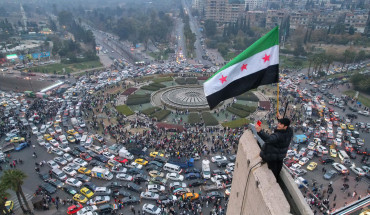The increasing role of Iran-backed Iraqi Shiite militia forces in the battle of Mosul has alarmed the Iraqi Sunni minority as well as many countries in the region. While the Iraqi security forces are busy fighting the Islamic State in eastern Mosul, militia groups fighting under the umbrella of Hash al-Shaabi – the Popular Mobilization Forces – have recently scored significant territorial gains in the western parts of Mosul, the capital of Nineveh Governorate and the Islamic State’s headquarter since 2014.
On November 16, PMF forces claimed a major victory by capturing a military airfield in Tal Afar, a strategic city 40 miles west of Mosul. And on November 21, the militia forces announced the start of the 4th phase of operations to secure areas from western Mosul to the Syrian border. The aim of the operation is to cut the Islamic State’s supply route between Mosul and Syria. The next phase, according to several militia leaders, is to enter the Turkmen-majority city of Tal Afar.
According to Lebanon’s Al Akhbar newspaper, Iraq’s Prime Minister Haider al-Abadi is under pressure from the United States and Turkey to deny PMF’s entry into Tal Afar. Although the Baghdad government has stressed that only Iraqi army units would enter Tal Afar city, PMF’s growing military role in western Mosul and statements by leaders of some PMF units suggest al-Abadi’s plan is far from guaranteed.
On November 20, Turkey warned that it would not remain silent to PMF’s military advances in Tal Afar. In response, Jawad al-Talibawi, a spokesman for the armed wing of Iran-backed Asaib Ahl al-Haq, told Fars News that the militia forces would retaliate against any Turkish intervention in the Iraqi territory.
If history is any guide, the growing influence of Shiite militias backed by Iran’s Revolutionary Guards would have dire consequences for Iraq. Iran might use some of the militias to dominate the Iraqi politics and expand its influence in the region. Some PMF leaders, including Hadi al-Amiri, the head of the Badr Organization, already tell Iranian media that their forces would go to Syria after defeating the Islamic State in Iraq.
The Middle East Institute (MEI) is an independent, non-partisan, non-for-profit, educational organization. It does not engage in advocacy and its scholars’ opinions are their own. MEI welcomes financial donations, but retains sole editorial control over its work and its publications reflect only the authors’ views. For a listing of MEI donors, please click here.













